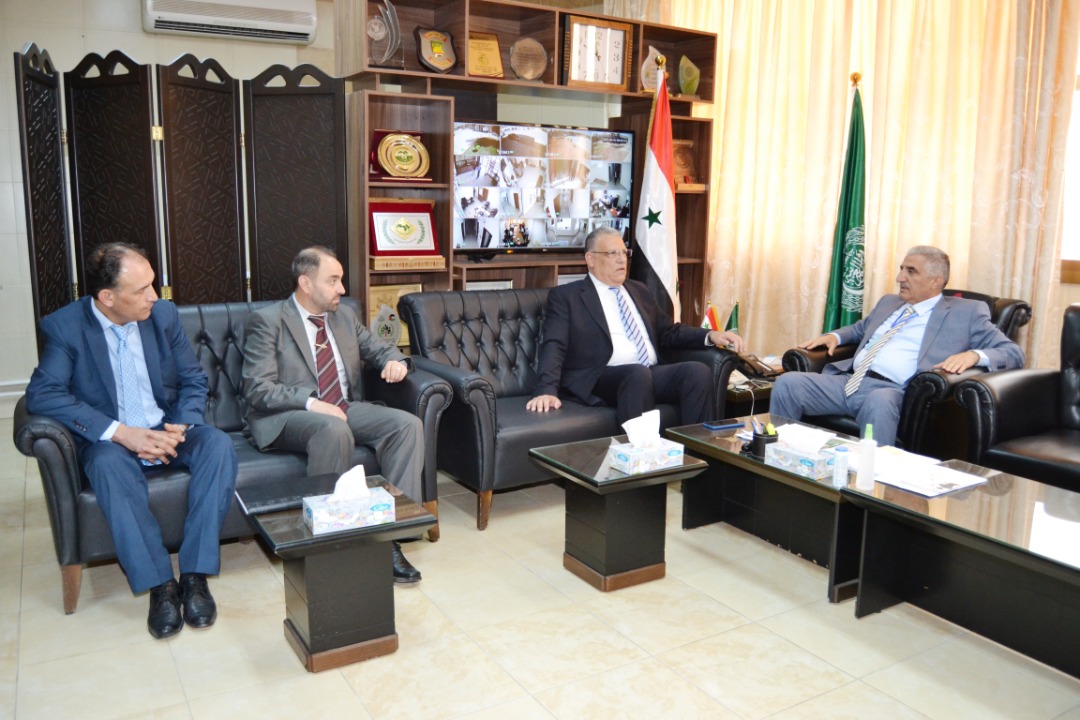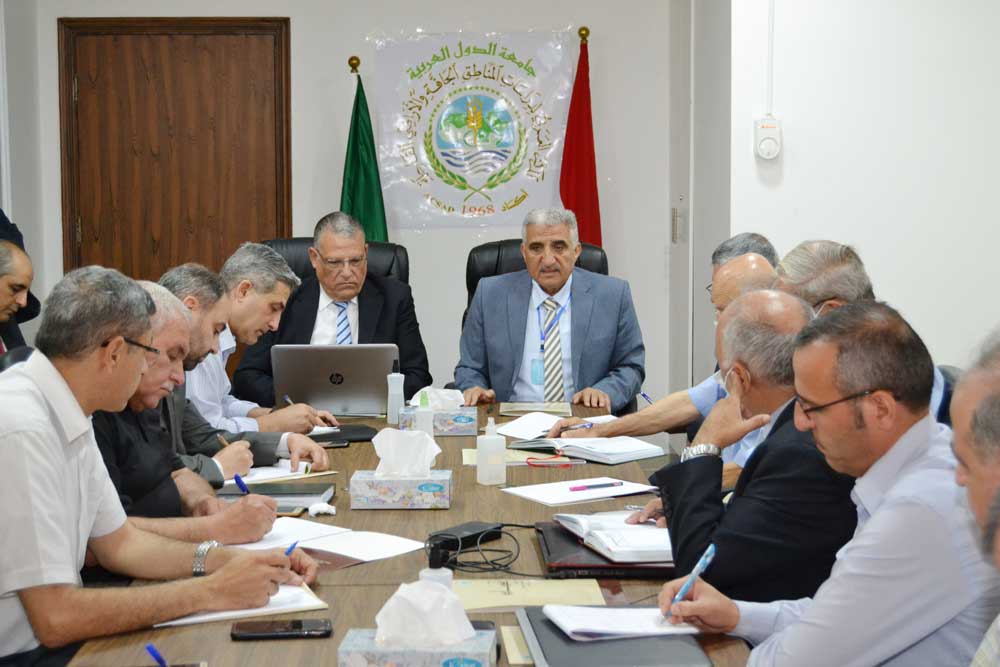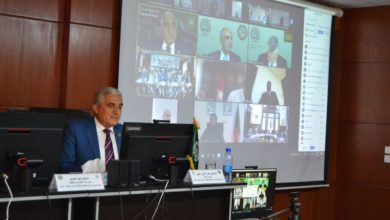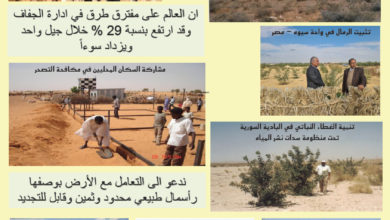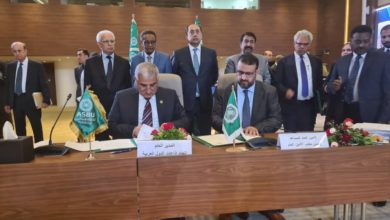The Ministry of Agriculture & ACSAD / Meeting at ACSAD’s headquarters.
The Ministery of Agriculture in the Syrian Arab Republic and the Arab Center Organization for the Studies Of Arid Zones and Drylands held a meeting at ACSAD’s headquarters today headed by the Agriculture Minister, Eng. Hassan Qatana and His Excellency the Director-General of ACSAD, Dr. Nasr Edin Obaid, and in the presence of a joint delegation from both sides, aiming at preparing for a workshop of addressing climate change and its impacts on the agricultural sector in the Syrian Arab Republic.
His Excellency the Minister expressed the Ministry of Agriculture’s gratitude to the Arab Center ACSAD for its kind efforts to achieve sustainable agricultural development in the Arab region in general and in the Syrian Arab Republic in particular. He explained that this had finally been reflected in the great effective participation of ACSAD in the Agricultural Forum “Challenges and Opportunities.”
His Excellency provided a scientific explanation about the current agricultural situation in the Syrian Arab Republic; the difficulties encountered it within the climate change and drought conditions hitting the region, which require the development of clear scientific and technical plans to deal with climate changes, which are characterized to be futuristic, economical, environmental and developmental, in partnership with the international organizations and bodies related to providing technical support and necessary expertise. And the development of an early warning system, through which could identify ways and means of dealing with drought and negative effects of climate changes could be determined.
His Excellency gave several visions, means, and methods that could help face those natural phenomena like adjusting the time of cultivation, fertilization methods, choosing the appropriate species, necessary treatment, identifying the diseases expected to infect the cultivations. He said, “this needs to study the climate change as a national project to develop an integrated plan and to identify the commitments and material needs ( expertise – workers – management… etc.); and the financial needs ( requisite funds); undertake whatever it takes to be ready for years of drought that may be coming; considering of statistical information related to monitoring indicators and the information on drought (rainfall-temperature rates and their impact on production and productivity.) the prediction of futuristic planning and dealing with agricultural courses during the upcoming drought years through areas reduction or adjust cultivations species in accordance with the prediction, and with what help in protecting livestock from drought too. He also said, ” what was provided highlighted the importance of conservation agriculture system and spreading it in the Syrian Arab Republic.
In his turn, His Excellency, the Director-General of the Arab Center ACSAD, Dr. Nasr Edin Obaid, welcomed His Excellency the Minister of Agriculture and Agrarian Reform and his accompanying delegation at ACSAD’s headquarters. He praised the great support ACSAD Organization receiving from the headquarters country and the Minister’s patronage and caring in following up ACSAD’s actions and activities, which contributed widely to achieving much success during the last short period. The Arab Centre was ready to place all its technical and scientific potentials at the Ministry of Agriculture’s disposal to achieve the common objectives and, in particular, to support the ideas and initiatives put forward by His Excellency the Minister of Agriculture. Especially that the Arab Center has a great, extensive, and distinguished expertise in adaptation areas to climate change, facing the drought, combating desertification, and developing the plant strains and varieties adapted to arid and semi-arid regions; improve and develop livestock within the negative climate conditions in dry areas, in addition to ACSAD’s rich experience in rainwater harvesting.
Dr. Nasr Edin Obaid explained that ACSAD, in cooperation with the regional and international organizations and institutions of financing, was able to adopt and deploy a conservation agriculture system in the Arab region ( Tunisia – Lebanon – Sudan – Mauritania.) It also extensively spread the conservation agriculture in Syria in collaboration and effective participation with Agriculture Research Center, whereas the area reached about 30000 hectares. It accomplished great positive results. He said that the results of the deployment of conservation agriculture had been highlighted by His Excellency the Minister. He also said that the environmental and economic repercussions had what justified and support the interest them, and that is what we seek today through preparation to organize a joint workshop on ” The Impact of Climate changes and mitigation its negative effects on the agriculture sector.” Holding it in the central region ( Hamah Governorate.) provided that a series of seminars and scientific workshops will be held on the impact of climate change on the agricultural sector, ways to adapt to it, presenting methods and means to that end, and devising the appropriate results and solutions.
